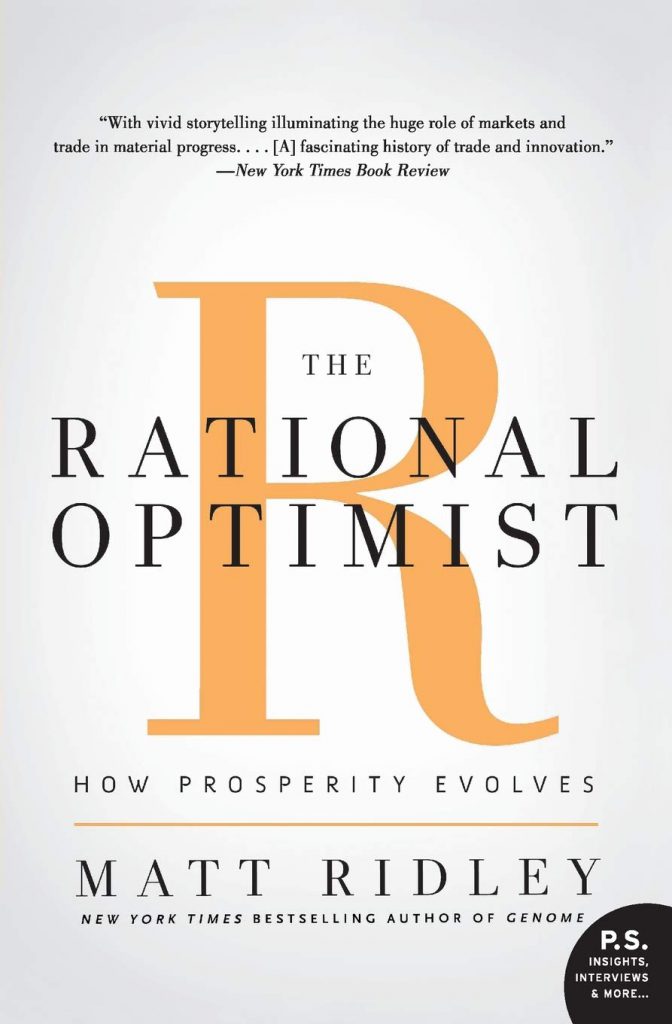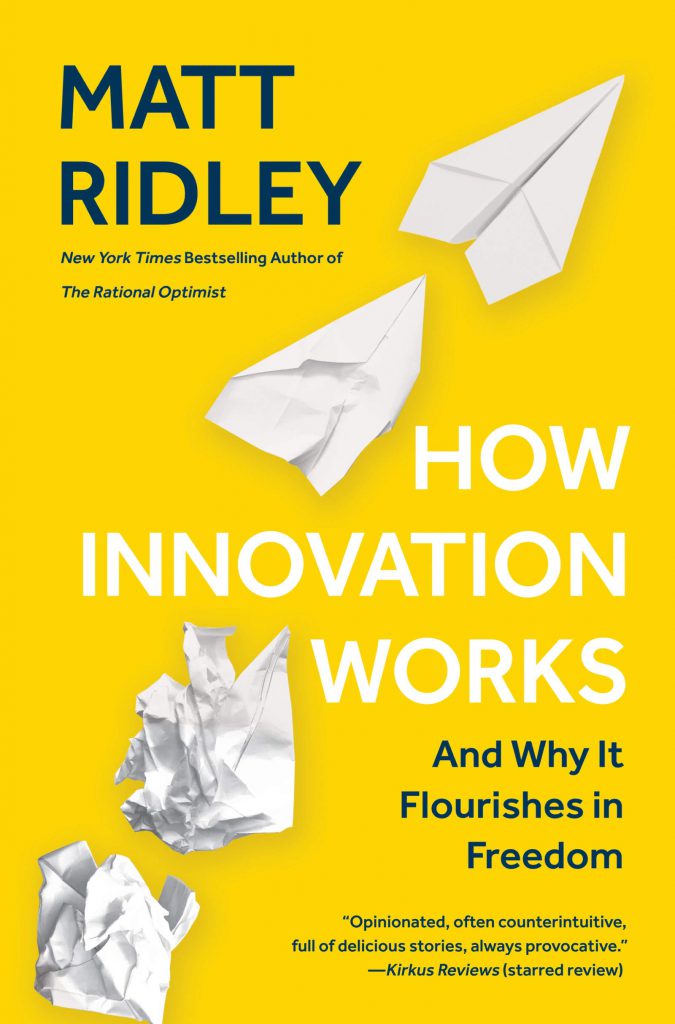
This review is a two for one special: The Rational Optimist: How Prosperity Evolves and How Innovation Works, both by Matt Ridley. One book leads into the other, so it’s a good pairing. Both books make the case that the world doesn’t suck quite as bad as we all thought, and discusses how life can get better through innovation. It’s a nice concept, so let’s start with some rational optimism.
I first encountered The Rational Optimist ten years ago in my college library. I didn’t read it then. The description on the back of the book claimed that “life is getting better at an accelerated rate”. I had to wipe off the back of the book after snorting in disbelief. This was before Covid, otherwise I would have used my ever-present disinfectant wipe. All of my college classes to date would blatantly disagree with the “life is getting better” statement.
It took me ten years and a lot of living before I finally read this book. The book stretches back in time to illustrate what life used to be for people all around the world. If you have ever watched historical movies, taken a history class, read books, or gone to a museum, you probably have an inkling of the comparatively primitive ways people onced lived. Ridley picks out excellent examples across history to demonstrate that quality of life is indeed improving.
At some point I set the book down and considered college. Many of the class discussions centered on why organizations, processes, government, and the interwoven systems of a nation were not working effectively right now. Depending upon the course, there was little discussion about how poorly those same systems worked in the past, if they even existed at all. Over time, there is definitely an improvement. If nothing else, The Rational Optimist made me look at the evolution of prosperity in a different way. Humans can now do more with less using different technology and processes. Consider the way we get around in trains, planes and automobiles. A series of systems were developed to leverage these technologies and diversify access. The system isn’t perfect, but in the grand scheme of things, transportation has come a long way.
Read the book for the deep dive, it’s interesting. But for the sake of time in this review, let’s fast forward to 2020 where Ridley digs into How Innovation Works. This book digs into the process of innovation. Innovation is “the turning of inventions into things of practical and affordable use to people”. Read the Goodreads description for the definition of innovation that got me to read the book. Innovation is necessary for change. It seems obvious, but it’s true.

How Innovation Works tells the individual stories of innovations that have changed the world. Yes, the innovation of coffee did change the world. I heat water for coffee in my microwave. When I’m lazy, microwavable dinners save the day. Robots are making microwaves. I bought my microwave online. I find recipes for microwave meals on my smartphone. I find tutorials for robot STEM activities while my meal is cooking. I run on coffee. The world runs on innovation.
That is why schools and libraries everywhere are concentrating deeply on innovation. Think about the maker movement, STEM and STEAM activities. I started looking at the wider world and exploring problems that really need solving. Innovation happens when inventions solve a practical problem people face everyday. This book and others changed the way I look at innovation in the library. Look to the world for opportunities of innovation, then funnel innovation towards what matters most to people. It’s a work in progress.
Long story short: read the books. Good things will happen.
Ridley, Matt. How Innovation Works: And Why It Flourishes in Freedom, 2020. Print.
Ridley, Matt. “Rational Optimist.” New Scientist. 206.2766 (2010): 30-30. Print.

